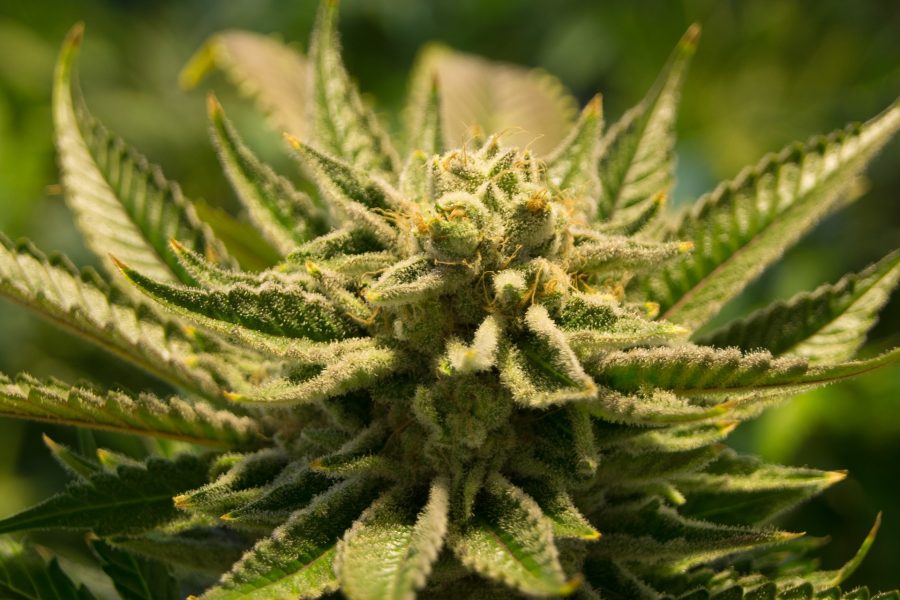Legalizing Marijuana in Illinois: Guaranteed to Succeed?
April 19, 2017
2018 may be the year marijuana is legalized in Illinois. Illinois lawmakers may end up approving a new bill to legalize, tax and regulate the drug, while proponents of recreational use may be able to toke up to 28 grams at a time if the bill is approved.
The bill would allow civilians over the age of 21 to buy, grow and possess up to 28 grams of Marijuana. The legislation proposes wholesale taxing and subjecting retail sales to the state’s 6.25 percent sales tax. The legislation will however not likely be up for a vote until sometime next year.
Legal Marijuana has been a hot topic lately with even more states like California, Nevada, Massachusetts, and Maine adding marijuana to their list of legal recreational use last year. The trend has turned out not to be a fluke as more and more states seek to legalize it or at least decriminalize in a few ways. As it is now, federally, marijuana is a schedule one drug putting it in the same category of drugs like heroin and LSD. The DEA’s definition of a schedule one drugs is “drugs with no currently accepted medical use and a high potential for abuse.” Not only has marijuana proved to be useful for medical use, but it has also been highly accepted for being non addictive. However, federally, both medicinal and recreational use have remained illegal.
So what will happen if Illinois legalizes marijuana next year? Crime will almost certainly fall as many cartels rely on marijuana as a massive source of income. The Sinaloa Cartel, led by the infamous Joaquín “El Chapo” Guzmán Loera, has been known to have a massive influence on illegal drug sales in Chicago. Jack Riley, director of the DEA’s Chicago office has said in the past that “70 to 80 percent of the narcotics here are controlled by Sinaloa and Chapo Guzmán.” If the sale of marijuana is legalized the cartel will almost certainly lose their grip on Chicago.
Illinois’s incarceration rate has been very much above average. In 2015, Illinois led the nation in overcrowded prisons with a percent capacity of 150 according to the U.S. Department of Justice. A portion of this is inevitably because of Marijuana charges. If marijuana is legalized those in prison already will have to stay, but marijuana charges will almost be guaranteed to drop. In Washington D.C. where marijuana was recreationally legalized in 2015, marijuana related charges went down 85 percent. This same percentage isn’t guaranteed, of course, in Illinois but it’s highly likely we could see a major decrease if it is legalized.
Chicago isn’t just limited to its cartel and incarceration problems though. It has had a terrible opioid crisis in recent times. According to the Centers for Disease Control and Prevention, Opioid related deaths rose 120 percent in 2014 to 2015 in Illinois. Although research has been minimal on the medicinal effects of marijuana, it has been shown to be able to be a replacement for certain opioid drugs. Usually dealing with pain, marijuana has been shown to do just as good a job at treating a patient as opioids and without the lingering addiction. Legalizing marijuana would not only provide a possible replacement drug for opioids, it could also be a drug used to manage opioid addiction.
This new bill’s chances have been looking good so far, the state of Illinois is broke and a massive new cash flow such as taxing new marijuana sales would be a vital source of income. So not only are citizens support high, now our politicians are too. This could just be the thing Illinois has been looking for to bring it back some money. When the bill was introduced two Illinois lawmakers said that the new legislation could introduce “$350 to $700 million in new tax revenue.” Americans’ support for legal marijuana use has been reported to be up to 60% according to a new poll by Gallup. Illinois could likely end up being another state that legalizes recreational marijuana in the coming year.


















